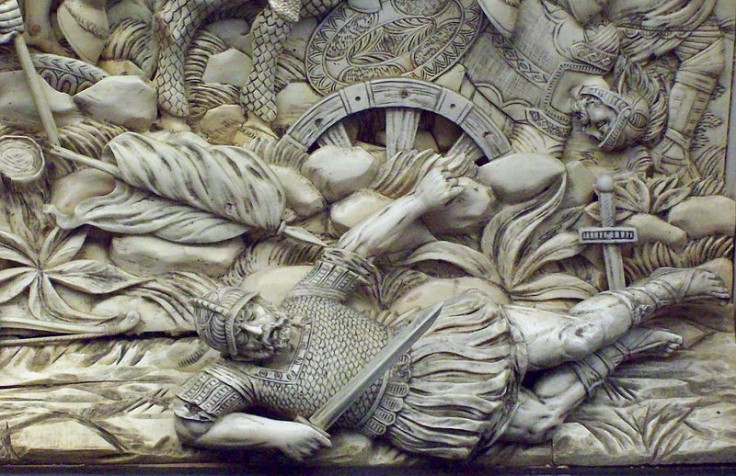Post-traumatic stress discovered in 1300BCE with accounts of 'ghosts faced in battle'
Soldiers suffering from PTSD have been traced back over 2,000 years by scientists

Soldiers suffering from post-traumatic stress disorder (PTSD) have been traced back almost two centuries by scientists.
A research team at Anglia Ruskin University has analysed ancient texts from Mesopotamia (modern-day Iraq) and believe they have found PTSD in accounts of battle-weary troops.
Then said Achilles, 'As for me, Patroclus is lying dead in my tent, all hacked and hewn, with his feet to the door, and his comrades are mourning round him. Therefore I can think of nothing but slaughter and blood and the rattle in the throat of the dying.'
Professor Jamie Hacker Hughes, a former consultant clinical psychologist for the Ministry of Defence, believes the first description of PTSD was accredited to Herodotus. The Greek historian describes what happened to a warrior called Epizelus during the battle of Marathon in 490BCE.
He "was in the thick of the fray, and behaving himself as a brave man should, when suddenly he was stricken with blindness, without blow of sword or dart; and this blindness continued thenceforth during the whole of his after life".
Even earlier accounts of PTSD were put forward by Professor Hughes. In his report Nothing New Under the Sun, he puts forward compelling references in the Assyrian Dynasty in Mesopotamia between 1300BCE and 609BCE.
"They described hearing and seeing ghosts talking to them, who would be the ghosts of people they'd killed in battle – and that's exactly the experience of modern-day soldiers who've been involved in close hand-to-hand combat," he told BBC News.
"As long as there has been civilisation and as long as there has been warfare, there has been post-traumatic symptoms. It's not a 21st Century thing," he added.
However, other academics are sceptical of PTSD in ancient times. Dr Jonathan Eaton has dismissed such claims, citing modern research pointing to the disorder being most prevalent in soldiers experiencing explosive events (like IEDs, land mines or booby traps).
Dr Dorothy King disputes this theory, stating that she was a sufferer of PTSD but had never experienced an explosive event.
© Copyright IBTimes 2025. All rights reserved.






















